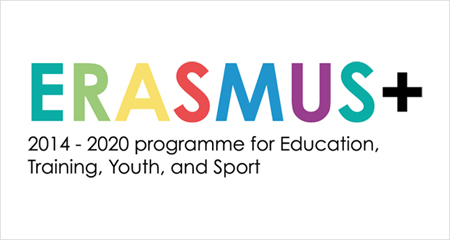THE PROJECT | Activities

THE PROJECT | Activities
Activities - Introduction
- First of all there are the activities that include all partners and that are carried out to a greater or lesser extend by all partners throughout the duration of the project -First of all there are the activities that include all partners and that are carried out to a greater or lesser extend by all partners throughout the duration of the project. These mainly concern basic skills like reading, writing and learning techniques. Here we rely on the successful experiences from former projects and intend to initiate activities like visits and close cooperation with libraries, expand the stock of our libraries– with literature and other media concerning project topics – and promote using it, deploy reading sessions in classes and the libraries, arrange competitions about reading (e.g. present the book of the month(A13)), read a local newspaper regularly and many more (A2). Time management is one of the techniques constantly employed in different learning processes, sometimes with the help of external experts. This is one section a part of the project management grant will be used for.
The following activities, starting after the first project meeting, will be developed and tested by specific partners and then referred to other project schools in the context of learning, teaching, training visits. Back home the schools will deploy these activities in their schools and report to the originators about problems and success so that they can readjust the activities continuously(A10).
- The German(A3) school will devise a two year step by step plan for graduates of what to do when and how to reach decisions. This will include formal requirements, interviews and talks with career advisors, training for job appointments (again with the of external experts), how to gather practical experience and ways to get a realistic view of help the own prospects. The information provided will be on a general level so that the partners can apply the model corresponding to their local facilities.
- The Cypriot(A4) students and teachers will develop a guide with simple instructions of how to understand for example, anger, sadness and disinterest. This will enable them to experience the significance of nonverbal behaviour, read the nonverbal cues and eventually be able to resolve conflict situations. Furthermore they will provide a model to perform a personal SWOT analysis which will help them understand individual strengths, weaknesses, opportunities and threads. As a result of this analysis, students will get to focus on their strengths, minimize their weaknesses and take the greatest possible advantage of opportunities available to them – thus boost their self-esteem!
- The Lithuanians(A5) will gather information in Lithuania and the partner countries about volunteer organizations and activities. They are going to produce leaflets, discs, etc., trying to get more and more pupils involved in volunteering through systematising and sharing information and good practice about it and of course practical experience in all kinds of institutions. The Germans will contribute the aspect of social care. In the field of language learning the Lithuanians intend to create a mini video dictionary to learn basic phrases of the partner countries and create a spirit of Europeanism – it is possible to get along with each other’s language.
- The Italian(A6) contribution is operating the communication and presentation platforms providing learners with Europass or language passport, so that European students have the same assessed competences and qualifications to be used in the labour market. They will also produce a guide with useful IT tools students and young people might need to get along in Europe, which includes testing, facilitating and recommending appropriate products.
- The Slovakians(A7) will compile a collection of actions to set students in motion. These will in the first place concentrate on “breaks in motion” where different games, sport equipment and locations will be tested in regard to their feasibility. In addition idle periods during a school day shall be discovered and filled with motion ideal to help students to keep fit and work off stress without huge effort. There will also be joint workshops for students from partner schools during work exchange visits, to practise the handling of these activities.
- The Spanish(A8) vocational schools is going to establish a mentoring system for the transition from school to work building job networks and exercising role plays making the students aware of the challenges and chances of working life.
All these activities (material, experts, excursions, sport equipment, music CDs ….) will be supported by the management grant